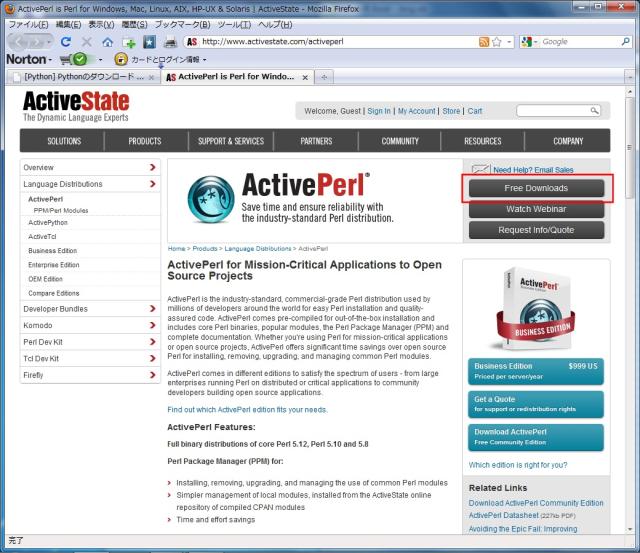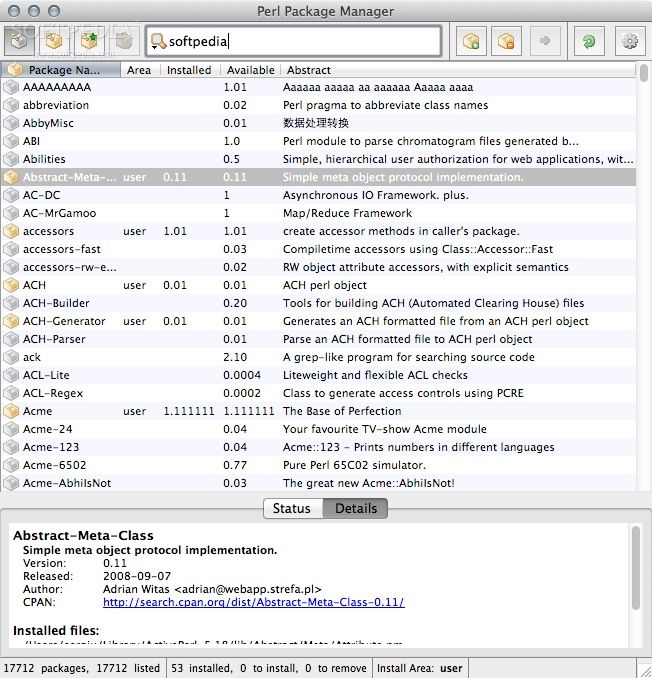

It is a tool of choice for parsing log files. It can scour CSV files for data fields based on complex regex statements. What sort of problems make Perl a natural?Īs stated above, Perl does very well with text processing. By giving you that choice, you can pretty much do your task your own way. Most CPAN modules give you both a procedural style as well as the object oriented one. Perl supports arrays, hashes, and references using which you can code in very powerful ways without thinking deeply about data structures or algorithms. These export the DB operations using Perl’s own semantics into unified portable Perl code that hides the complexities of the database.


Active perl driver#
Through CPAN, you can wrap many databases-SQLite, MySQL, Postgres, and more-in Perl code using database driver (DBD) modules. Most modules are written in pure Perl, though some performance intensive modules have an XS component that uses C for performance. You can find a module to do anything you want.
Active perl archive#
Like npm for Node.js, Perl has a vibrant development community in CPAN, with a vast archive of Perl modules. We can easily invoke a Perl daemon to avoid spending hours working on C and reduce security flaws. It can create Unix daemons or server processes that run in the background. As a result, it excels at pipes, file slurping, inter-process communication, and other geeky tasks. It can serve as a wrapper around Unix tools and is fully integrated into OS semantics. Be it a regex-based approach or otherwise, Perl is excellent for logfile analysis, text manipulation, in-place editing of files, and scouring structured text files for specific field values. Perl’s primary strength is in text processing. It is open source and free to contribute to. Perl is a high-level, interpreted language. It’s far from dead, and is still very relevant to software engineering today. But Perl is more than just scripting.īut from the amount of talk about Perl on Reddit or Stack Overflow, you might think it’s dead. You may have used it for occasional sys admin tasks, in your tool chain, or to enhance some shell scripts that needed more gas. The language was created in 1987 as a general purpose UNIX scripting language, but has undergone many changes since then (even spawning another programming language, Raku). I am pretty certain you have also used Perl more than once, perhaps several times. If you love UNIX/Linux/BSD like me, then you have definitely learnt Perl and programmed in it.


 0 kommentar(er)
0 kommentar(er)
